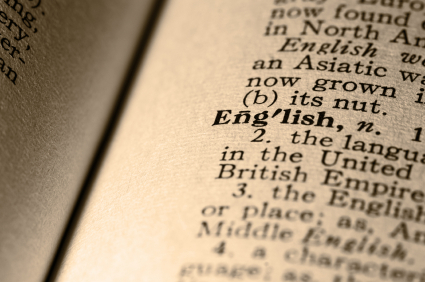Getting Comms Right
Travel Retail Talk: Do you speak English?

Much of our business in the world of travel retail is conducted in English, so love it or loath it, it’s a language with which most of us have to battle at some time. But ‘English’ comes in a variety of forms. We all know that American English can be very different to the English used in Britain, not just in the choice of words (‘cell’ rather than ‘mobile’ phone for example), but in the tone of the language considered correct in business use.
Euro-speak Then there is another type of English used by those for whom English is a second language, which utilises terminology that would not be chosen by a native English speaker.
An example of this is the word ‘cooperation’ used to mean ‘partnership’, which we see regularly in quotations in press releases. Is ‘we are delighted with this successful cooperation’ incorrect? Technically, yes. But language evolves. If a word is used frequently enough and its meaning is clear, its new meaning becomes acceptable, as is perhaps the case here.
Not wrong, but not right English is full of pitfalls for the non-native speaker. Many of these are to do with what is polite. Should you ask to visit the ‘toilet’, ‘lavatory’ or ‘loo’ in the UK? And why do Americans ask to use the ‘bathroom’ or the ‘restroom’ when they want neither a bath nor a rest?
Similarly in business, it’s easy for the non-native speaker to miss the nuances. ‘The deadline for the contract to be signed is today’ essentially means the same as ‘You must sign the contract today’, but while the first statement is a gentle reminder, the second implies the writer is running out of patience.
Usage and abusage But just because someone grew up speaking English, it doesn’t mean they know how to use it properly. ‘Please reply to myself’, is regularly used by native English speakers instead of ‘please reply to me’.
Similarly, ‘like’ is often used instead of ‘as’, but, as a veteran newspaper editor once raged, there is no Shakespeare play called; ‘Like you like it’.
Tell it straight The native English speaker also often uses language that is confusingly complex. Double negatives such as ‘I am not displeased with this project’, and overblown phrases such as ‘I would be most grateful if you could kindly’ instead of ‘please will you’, are just two examples of writing style that can have non-native speakers reaching for the dictionary. They should be avoided.
The British are renowned for being overly polite. One Dutch company allegedly perceived this as a major problem, so they wrote a guide to help the unwary…
What the British say: ‘I hear what you say.’ What the British mean: ‘You are wrong and I don’t want to discuss it further.’ What others think: ‘He’s considering my point of view.’
What the British say: ‘That is very brave.’ What the British mean: ‘You are insane.’ What others think: ‘He thinks I’m brave.’
What the British say: ‘I was a bit disappointed that…’ What the British mean: ‘I’m furious.’ What others think: ‘It doesn’t really matter.’
What the British say: ‘I’ll bear that in mind.’ What the British mean: ‘I’ve forgotten it already.’ What others think: ‘He’ll think about it.’
What the British say: ‘Oh, by the way…’ What the British mean: ‘This is the real reason for the conversation.’ What others think: ‘This isn’t important.’
‘Vive la difference!’ as we say in London…